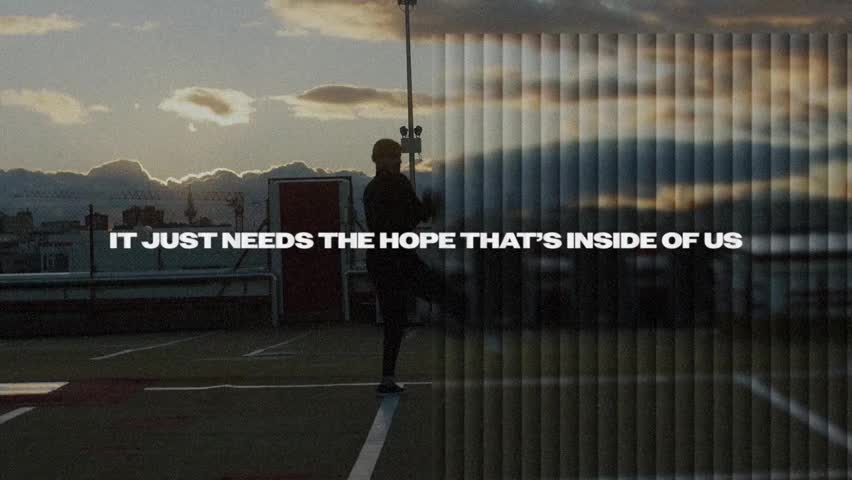I Lift My Hands
Inspired by Chris Tomlin
Read: Psalms 28:1
Listen to my prayer for mercy as I cry out to you for help, as I lift my hands toward your holy sanctuary (v.2).
The Book of Psalms reveals more than just what “modern worship” might have looked like 2300 years ago. Interwoven into the exclamations of praise and pleas for help are some very revealing pictures of the sort of God-followers the psalmists were, of how they viewed themselves and their Creator and the joys and hardships and sufferings of life. As we read the song lyrics that King David and his fellow psalmists crafted hundreds of years before God’s salvation was clearly revealed in Jesus, the picture that begins to emerge is one of individuals wrestling with God, wrestling with the big questions of faith.
And what becomes striking in all of that, is how comfortable they were trusting God with their hurts and their doubts. Why is there evil in the world? How long must I wait for your deliverance Oh God? I’ve been crying day and night. Are you even listening to me? They engage in conversation with God sometimes as if he were a friend, sometimes as if he were a father, and other times as if he were a judge who might offer justice. When they’re angry and frustrated, those emotions find voice in their prayers. They don’t seem to think they need to hide anything from God, or to hold back the flood of what they’re feeling. Doubt and confusion and pain gush out in a flood of honesty.
So perhaps we should ask If the psalmists were so comfortable in their day relating to God with that kind of honesty, why are we often so timid and conservative about expressing our own doubts and disappointments to our Maker? Are we not quite convinced that our faith will be able to stand up to the questions if we really face them head-on? Do we think that asking why our life doesn’t make sense right now is the same thing as confessing a lack of trust in God? Do we think it shows a lack of faith? If so, then somehow, along the way, we’ve lost something essential.
Because the psalmists seemed to believe they were exercising their faith by putting their doubts right out there in the open. It’s as if they knew that intimate relationship with God wasn’t possible if there wasn’t a freedom to be honest. And their honesty didn’t come off as a petty, hurtful gripe-session either. It’s more like a close friend or a spouse in a committed and loving relationship who says Hey, I’m feeling hurt and disappointed and confused and maybe even a little angry at you right now and whether or not those feelings are justified, I don’t know, but we need to talk about this and get it out in the open because otherwise I’m just going to stew on it.
They knew that honesty was a necessary part of engaging in real relationship because it clears the ground of all the clutter and baggage. Once we’ve done that, then we can interact with the person rather than with our own baggage. And if you read through the psalms, you find the same pattern emerging in so many of them: The psalmists acknowledge their hard circumstances, disappointments, fears, turbulent emotions, questions. They get all of that on the table. And by doing so maybe what they’re really doing is handing it to God. They’re saying Here’s where I am and how I feel. Now take it. The ball is in your court. And so the act of honesty really is an act of faith, because it’s a way of saying I trust you with all of this messiness in my life, God. You’re the One I’m bringing it to.
And having done that, the psalmists then had a tendency to turn more reflective. They would begin to ponder the goodness and strength and past faithfulness of God. God, You are loving. You are able. You are merciful and forgiving. You are mighty. You are my shield and defender. You are the one who hears my cry. You are my refuge and my strength. They would actively re-center their hearts in the eternal truths that extend beyond any present circumstances. They would anchor themselves in the unchanging nature of who God is, and then they would begin to project that into the future. You have delivered me in the past, so now, even in this present darkness or confusion, I will remind my heart to trust in Your faithfulness, for I know you will deliver me this time too.
The end result is that this faith, arising again in their hearts, opened their eyes to see afresh the reality of who God is in all his awesome power, glory and lovingkindness. And that revelation, appropriately, moved their hearts to worship and praise of this great and glorious Deliverer and Redeemer. We find that same pattern of honesty leading to remembrance leading to worship repeated over and over in the psalms.
God is strong enough to hold all of our doubt and fear and disappointment. We don’t need to be timid about pouring our hearts out to him. And as we pour them out, we should let that lead us to a place of remembering who He is, reflecting on all that he has done for us in the past. He is faithful. He is our refuge and strength. Heis our savior and deliverer. We should let faith open our eyes again to the reality of how loved and held we are. And then we should let that glorious realization lead us to worship. But we should reach that place of worship honestly. Not by coming to God pretending everything’s okay in our hearts and lives when it isn’t. In other words, we should let our relationship with God be a relationship.
That’s what the psalmists did.
Chris Tomlin - I Lift My Hands (Official Music Video)










![Crowder - — [DASH]](https://content.swncdn.com/godtube/2024/04/10/641289/641289009.jpg)




